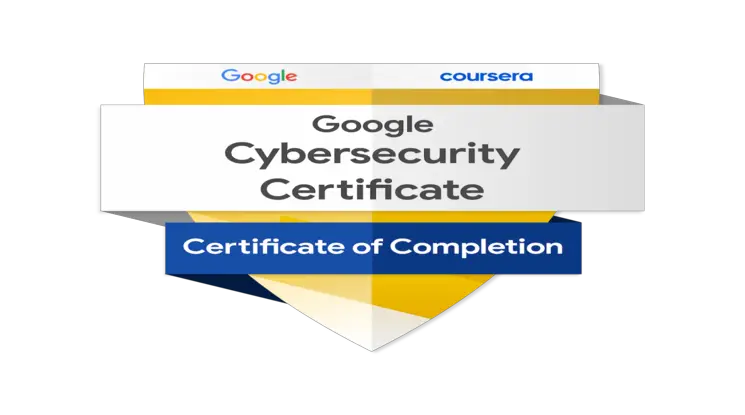Building strong and lasting relationships is fundamental to personal happiness and professional success. Whether in friendships, family bonds, or romantic partnerships, the principles of creating and maintaining healthy relationships remain consistent. This comprehensive guide explores effective strategies for fostering connections that endure over time. It delves into the importance of communication, trust, empathy, and shared experiences, among other vital components. By understanding and applying these strategies, individuals can cultivate relationships that not only survive the test of time but also thrive with mutual respect and fulfillment. From the nuances of emotional intelligence to the practicalities of conflict resolution and the role of technology in modern connections, this guide provides a detailed roadmap for building relationships that are both resilient and deeply satisfying.
The Foundation of Strong Relationships
Understanding the Importance of Communication
Effective communication is the cornerstone of any strong relationship. It involves not only speaking clearly but also listening actively. Communication allows individuals to express their needs, desires, and concerns, fostering a sense of mutual understanding and respect.
Active Listening
Active listening is a crucial skill that involves fully concentrating, understanding, responding, and remembering what the other person is saying. It goes beyond just hearing words; it requires paying attention to the speaker’s body language, tone, and emotions. Active listening helps to validate the other person’s feelings and shows that you genuinely care about their perspective.
Open and Honest Dialogue
Open and honest dialogue is essential for building trust and intimacy. It involves being truthful about your feelings and thoughts, even when it’s uncomfortable. Honesty fosters transparency and prevents misunderstandings that can erode trust over time.
Building Trust
Trust is the foundation upon which all strong relationships are built. Without trust, it’s challenging to maintain a connection, as doubt and suspicion can create barriers between individuals.
Consistency and Reliability
Being consistent and reliable is one of the most effective ways to build trust. When you consistently follow through on your promises and commitments, others will see you as dependable and trustworthy. Reliability also involves being there for the other person in times of need, which reinforces the bond between you.
Transparency and Accountability
Transparency involves being open about your actions and intentions, while accountability means taking responsibility for your actions. When individuals in a relationship are transparent and hold themselves accountable, it fosters a sense of security and trust.
Developing Emotional Intelligence
Understanding and Managing Emotions
Emotional intelligence (EI) is the ability to understand and manage your own emotions, as well as recognize and influence the emotions of others. High EI is crucial for maintaining healthy relationships because it enables individuals to navigate emotional complexities effectively.
Self-Awareness
Self-awareness involves recognizing your own emotions and understanding how they affect your thoughts and behavior. By being self-aware, you can better manage your reactions and communicate more effectively.
Empathy
Empathy is the ability to understand and share the feelings of another person. It involves putting yourself in their shoes and seeing things from their perspective. Empathy strengthens relationships by creating a deeper emotional connection and fostering mutual understanding.
Conflict Resolution
Conflict is a natural part of any relationship, but how it’s handled can significantly impact the relationship’s health and longevity.
Addressing Issues Promptly
It’s important to address conflicts as soon as they arise, rather than letting them fester. Promptly dealing with issues prevents resentment from building up and allows for quicker resolution.
Finding Common Ground
During conflicts, it’s essential to find common ground and work towards a compromise that satisfies both parties. This involves being willing to give and take, and prioritizing the relationship over individual desires.
Nurturing the Relationship
Quality Time and Shared Experiences
Spending quality time together and sharing experiences is vital for nurturing relationships. It helps to strengthen the bond and create lasting memories.
Prioritizing Time Together
In our busy lives, it can be challenging to find time for our relationships. However, making a conscious effort to prioritize time together is crucial. This can involve scheduling regular dates, family outings, or simply setting aside time each day to connect.
Engaging in Shared Activities
Engaging in activities that both parties enjoy can create a sense of unity and shared purpose. Whether it’s a hobby, sport, or travel, shared activities provide opportunities to bond and create positive experiences together.
Expressing Appreciation and Gratitude
Showing appreciation and gratitude is an important way to nurture a relationship. It involves recognizing and valuing the other person’s contributions and efforts.
Verbal Affirmations
Verbal affirmations, such as saying “thank you” or expressing admiration, can go a long way in making the other person feel valued and appreciated. Regularly expressing positive feelings reinforces the emotional bond and fosters a positive relationship dynamic.
Small Acts of Kindness
Small acts of kindness, such as thoughtful gestures or surprises, can also show appreciation. These acts demonstrate that you are thinking about the other person and value their happiness.
Maintaining Healthy Boundaries
Understanding the Role of Boundaries
Healthy boundaries are essential for maintaining individuality and respect within a relationship. Boundaries help to define personal space and ensure that both parties feel comfortable and respected.
Setting Clear Boundaries
Setting clear boundaries involves communicating your needs and limits openly. It’s important to be assertive about your boundaries and ensure that they are respected by the other person.
Respecting Boundaries
Respecting the other person’s boundaries is equally important. This involves being mindful of their limits and not overstepping them. Respecting boundaries fosters mutual respect and trust.
Adapting to Changes
Embracing Growth and Change
Relationships are dynamic and constantly evolving. Embracing growth and change is essential for maintaining a strong and lasting connection.
Personal Growth
Encouraging and supporting each other’s personal growth is vital. This involves being open to change and willing to adapt as individuals grow and evolve.
Adapting to Life Changes
Life changes, such as career shifts, relocations, or family dynamics, can impact relationships. Being flexible and adaptable to these changes helps to navigate challenges and maintain a strong bond.
Continuous Improvement
Continually working on improving the relationship is important for its longevity. This involves regularly assessing the relationship’s health and making necessary adjustments.
Regular Check-Ins
Regular check-ins allow both parties to discuss their feelings and any concerns they may have. This proactive approach helps to address issues before they become major problems.
Seeking Professional Help
In some cases, seeking professional help, such as couples counseling, can be beneficial. A professional can provide guidance and tools to navigate challenges and improve the relationship.
Building Strong Relationships in Different Contexts
Romantic Relationships
Romantic relationships require a unique set of strategies to maintain their strength and longevity.
Maintaining Intimacy
Maintaining intimacy involves both physical and emotional closeness. This can be achieved through regular affection, open communication, and spending quality time together.
Managing Expectations
Managing expectations involves being realistic about what you expect from the relationship and communicating these expectations clearly. Unrealistic expectations can lead to disappointment and strain the relationship.
Friendships
Friendships are an essential part of our social support system and require effort to maintain.
Staying Connected
Staying connected with friends involves regular communication and making time for each other. This can be through calls, messages, or in-person meetings.
Being Supportive
Being supportive means being there for your friends in times of need and celebrating their successes. This fosters a sense of loyalty and strengthens the bond.
Family Relationships
Family relationships are often the longest-lasting and can be the most complex.
Balancing Individual Needs and Family Obligations
Balancing individual needs with family obligations involves finding a compromise that allows you to maintain your personal well-being while fulfilling family responsibilities.
Resolving Family Conflicts
Family conflicts can be particularly challenging but addressing them with empathy and a willingness to find common ground is crucial for maintaining harmony.
The Role of Technology in Relationships
Positive Impacts of Technology
Technology has transformed the way we communicate and maintain relationships.
Staying Connected Across Distances
Technology allows us to stay connected with loved ones regardless of physical distance. Video calls, social media, and messaging apps make it easier to maintain relationships across the globe.
Access to Resources and Support
Technology provides access to a wealth of resources and support for relationship building. Online counseling, support groups, and educational materials can help individuals improve their relationship skills.
Challenges of Technology
While technology offers many benefits, it also presents challenges that can impact relationships.
Over-Reliance on Digital Communication
Over-reliance on digital communication can lead to a lack of face-to-face interaction, which is essential for building deep connections. It’s important to balance digital communication with in-person interactions.
Managing Digital Boundaries
Setting digital boundaries is important to prevent technology from interfering with quality time. This involves setting limits on screen time and ensuring that technology doesn’t disrupt meaningful interactions.
Conclusion
Building strong and lasting relationships requires effort, commitment, and a willingness to grow and adapt. By focusing on effective communication, trust, emotional intelligence, and nurturing the relationship through quality time and appreciation, individuals can create connections that withstand the test of time. Additionally, maintaining healthy boundaries, embracing change, and leveraging technology positively can further enhance relationship quality. Whether in romantic partnerships, friendships, or family connections, these strategies can help build a solid foundation for enduring and fulfilling relationships.




